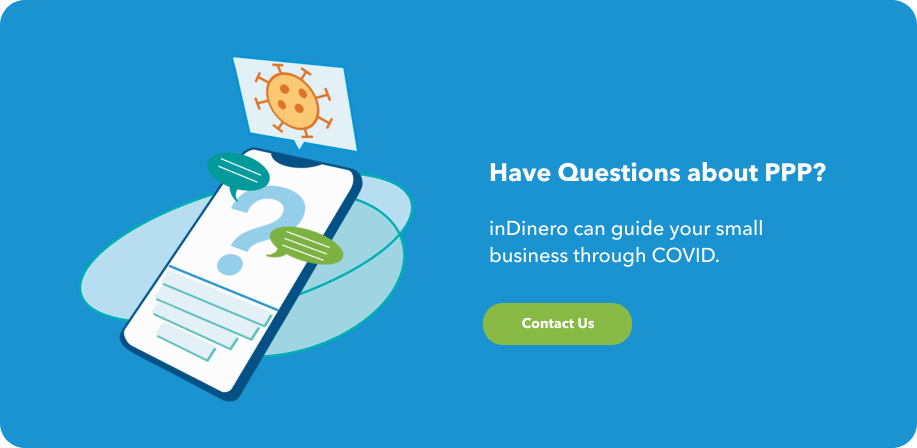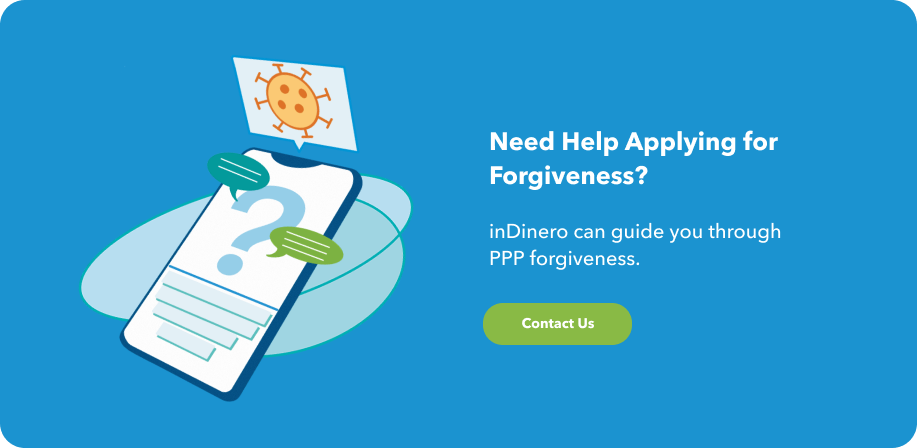Somehow, we’re coming up on the end of 2020. How is that possible, you ask? Only those experienced in time travel can answer that question.
With the end of the year—especially a year like 2020 that introduced the complicated and ever-changing Paycheck Protection Program (PPP) to hard-hurt business owners—come many loose ends to tie up before we stumble into 2021 and what’s promising to be one of the most complicated tax years ever.
If you were one of those business owners who received PPP funds, what comes next for PPP forgiveness and the tax impact is one loose end you don’t want to leave dangling. To avoid a shockingly huge tax bill, here are 5 questions you need to be asking your accountant now about your PPP loan.
After this article, if you still have unanswered questions, we have everything you could wish for in a PPP guide here.
1. If my PPP loan is forgiven, how will this affect my business taxes?
Normally, loan forgiveness creates taxable income—however, PPP loan forgiveness does not. The CARES Act, which created the PPP loans, excluded the forgiveness of these loans from income. That’s the good news. The bad news is this: the expenses that were paid using PPP loan funds are not deductible. Expenses like rent and utilities fall into this category, two things most of us used the funds for, so it’s important to have all the facts before you get saddled with a giant tax bill.
Ultimately, if you get loan forgiveness and it’s not taxable, then you can’t get a double-benefit by deducting what you spent it on.
That’s how things stand as of November 3, 2020, but future legislation might change this, so stay tuned. We’ll update this post with any new developments.
2. Will PPP loan forgiveness impact my 2020 R&D tax credit?
Yes, your R&D credit might be reduced. Since expenses paid with forgivable PPP loan proceeds are not deductible, any such expenses are not allowed to be used toward the R&D credit. For example, if you plan to claim an employee’s annual wages as R&D costs, the portion of the wages that the PPP loan covered, will not be allowed towards the R&D credits. Be sure to discuss this with your tax accountant.
3. I received a $10,000 EIDL advance and I expect my PPP loan to be forgiven. Are these two connected and is there anything I should be concerned about?
Unfortunately, as the law is currently written, the PPP loan forgiveness amount will be reduced by the amount of the EIDL advance and that amount (in this case, $10,000) will need to be paid back, with interest. So for the time being, assume you’ll need to put aside that advance plus interest. Find out more on page 10, Question 1 of this SBA Q&A doc.
Future legislation might change this, but this is how it stands now. As we said before, we’ll make updates to this post as new developments arise, so stay tuned.
4. I got a PPP loan—should I be worried about a tax audit or review?
While audits are always possible, the SBA has a plan to review some PPP loans. A review is similar to an audit but is usually more specific, in this case, specific to your PPP loan and surrounding business facts and circumstances. If your PPP loan is greater than $2mn, the SBA will review your loan.
The SBA has limited resources to review all loans, but it is possible that a loan smaller than $2mn will be reviewed and this could happen much later. So far, there is no indication as to how many loans smaller than $2mn will be reviewed. It’s important to be prepared, just in case. And by prepared, we mean having all the documentation and reports required by the SBA for disbursement and forgiveness—see the next question for more details.
5. How should I prepare in case my PPP loan is reviewed by the SBA?
Here are 3 ways you can be prepared for a review of your PPP:
- Maintain all documents and forms used to calculate and apply for the loan, including payroll records, employee counts, financial statements, the loan application you submitted, etc.
- Be ready to argue, if needed, that when you took the PPP loan, “current economic uncertainty makes this loan request necessary to support the ongoing operations”.
- Keep clear records of the use of the loan proceeds—like a spreadsheet of the use of the proceeds, financial statements, bank records.
Your lending bank, accountant, and payroll provider are the ones to talk to about how best to be prepared for a review. Be sure to reach out to them sooner rather than later. And if you don’t have an accountant, come talk to us, we’re helping hundreds of businesses through their PPP loans.
Have some loose ends you want to be wrapped up in 2020? More questions about PPP forgiveness guidelines and tax implications? The team at indinero is here to help—talk to us today.
Quick Note: This article is provided for informational purposes only, and is not legal, financial, accounting, or tax advice. You should consult appropriate professionals for advice on your specific situation. indinero assumes no liability for actions taken in reliance upon the information contained herein.





